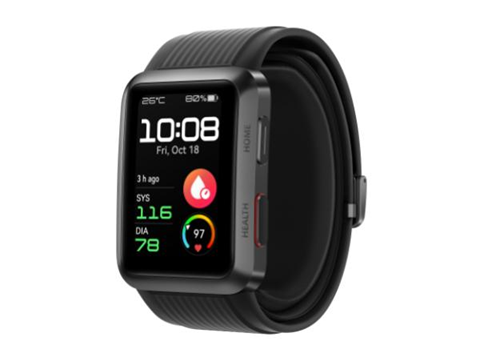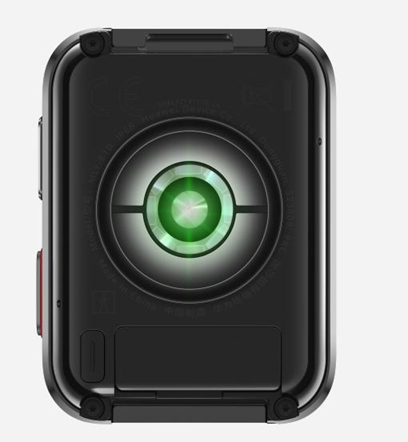Smartwatches have
emerged as powerful tools for personal health management. With advanced sensors
and real-time data collection, they provide individuals with continuous
insights into their well-being. From monitoring heart rates to tracking sleep
patterns, smartwatches offer comprehensive health monitoring on your wrist.
These devices not only gather data but also interpret it using AI-driven
algorithms, giving users actionable feedback. Whether it's detecting irregular
heart rhythms or reminding users to stay active, smartwatches are helping
millions improve their health. Devices like the watch d2 are setting
new standards in this domain, offering even more sophisticated monitoring
features. Their seamless integration into daily life makes them indispensable,
especially for those aiming to stay proactive about their fitness and wellness.

What
Health Metrics Can Smartwatches Track?
Real-time Heart Rate Monitoring
One of the standout
features of modern smartwatches is their ability to monitor heart rates in real
time. With optical sensors placed on the wrist, these devices continuously
track heart rate fluctuations throughout the day. This feature is particularly beneficial
for athletes and fitness enthusiasts, allowing them to monitor exertion levels
during exercise. But beyond fitness, heart rate monitoring can also detect
irregularities like atrial fibrillation, giving users the chance to seek
medical advice before symptoms escalate. Smartwatches, such as the Watch D2, can alert wearers to unusually
high or low heart rates, even during periods of rest, helping people identify
potential health issues early on.
Blood Oxygen and Sleep Tracking
Another critical metric
tracked by smartwatches is blood oxygen levels. Using SpO2 sensors,
smartwatches can measure how efficiently oxygen is being delivered throughout
the body. This is particularly useful for individuals with respiratory
conditions, such as asthma or sleep apnea. In addition to blood oxygen levels,
smartwatches excel at sleep tracking. By monitoring movements and heart rate
variations during the night, they can analyze sleep stages, including deep
sleep and REM cycles. With detailed sleep reports available each morning, users
can identify patterns that may affect their rest, helping them adjust their
routines for better overall sleep quality.
Stress and Activity Levels
Stress management has
become a major focus for smartwatch manufacturers. These devices can estimate
stress levels by analyzing heart rate variability (HRV), a key indicator of how
the body responds to physical and emotional stress. By detecting changes in
HRV, smartwatches offer relaxation and breathing exercises to help users manage
stress in real-time. Additionally, smartwatches track physical activity levels
throughout the day. They count steps, monitor calories burned, and provide
sedentary reminders to encourage users to move more frequently. Whether it's
prompting you to take a walk or providing insights into how active you've been,
smartwatches are key motivators for maintaining a healthy lifestyle.
How Do Smartwatches Use AI for Better Health
Insights?
AI-Powered Health Alerts
Smartwatches rely
heavily on AI to provide users with more accurate health alerts. For example,
the integration of AI helps distinguish between normal heart rate fluctuations
and potential health concerns. If a smartwatch detects an irregular rhythm, it uses
AI to analyze the data and decide whether an alert should be triggered. This
early warning system can notify users before symptoms become critical, helping
them take preventive action. Some smartwatches are also capable of sending
emergency alerts to predefined contacts if they detect a sudden drop in
activity, such as a fall, making them vital tools for elderly individuals or
those with chronic conditions.
Predictive Health Data Analytics
AI-powered predictive
analytics play a significant role in how smartwatches forecast potential health
trends. By continuously collecting data, smartwatches can analyze patterns over
time and make predictions about a user's health. For instance, based on long-term
trends in heart rate, activity levels, or sleep patterns, a smartwatch can
provide forecasts about potential risks, such as cardiovascular issues or
chronic fatigue. The algorithms used are trained to detect anomalies that might
otherwise go unnoticed by the user. Predictive insights enable individuals to
make lifestyle adjustments before health conditions worsen, fostering a more
preventive approach to personal health care.
Personalized Health Suggestions
Smartwatches use AI not
only to track data but also to provide personalized health recommendations. By
analyzing individual behavior and physiological responses, they tailor
suggestions to each user. For instance, after monitoring your sleep patterns
for several weeks, a smartwatch might suggest changes to your bedtime routine
to improve sleep quality. Similarly, if it detects high stress levels, the
device may recommend relaxation techniques, such as guided breathing exercises.
These personalized tips help users optimize their health habits, making the
smartwatch more than just a data-collection tool—it's an active participant in
guiding healthier lifestyle choices.
Can Smartwatches Replace Traditional Health
Devices?
Smartwatches vs. Fitness Trackers
While fitness trackers
were once the go-to devices for health monitoring, smartwatches have quickly
eclipsed them in terms of features and accuracy. Fitness trackers typically
offer basic functionality, such as step counting and simple heart rate tracking,
but smartwatches provide a broader range of metrics, including advanced heart
rate analysis, blood oxygen monitoring, and even ECG capabilities. Moreover,
the integration of AI in smartwatches means users can receive more nuanced
feedback and alerts. While fitness trackers are great for beginners or casual
users, smartwatches offer a more complete and proactive approach to health
management, making them the preferred choice for serious health enthusiasts.

Comparison with Medical Devices
Though smartwatches
offer a wide range of health-tracking features, they are not designed to
replace professional medical devices. Medical-grade equipment used in hospitals
or clinics, such as ECG monitors or pulse oximeters, typically offer a higher
degree of accuracy. However, smartwatches are closing the gap by providing
convenient, real-time tracking that enables users to stay on top of their
health between medical appointments. For instance, the ECG function in certain
smartwatches has received FDA approval for detecting heart rhythm
irregularities, showing that smartwatches can complement medical-grade devices
in some aspects of health monitoring.
How Are Smartwatches Impacting Daily Health
Routines?
Encouraging Active Lifestyles
Smartwatches excel at
motivating users to maintain an active lifestyle. Equipped with activity
tracking features, these devices monitor daily movements, calculate calories
burned, and even track specific workouts such as running, cycling, or swimming.
Many smartwatches also include reminders to stand or move if they detect
prolonged periods of inactivity, which can be crucial for office workers or
those with sedentary jobs. The ability to set fitness goals, receive
achievement badges, and track progress over time encourages users to stay
active. With real-time feedback, smartwatches ensure that health remains a
constant focus throughout the day.
Sleep
and Recovery Monitoring
In addition to
encouraging physical activity, smartwatches play a significant role in helping
users optimize their recovery. Sleep tracking features allow users to analyze
their sleep cycles, providing insights into the quality and duration of their
rest. By monitoring heart rate, breathing patterns, and movement during sleep,
smartwatches can determine how much time users spend in deep sleep or REM
cycles. For those with fitness goals, recovery is just as important as physical
exertion. The data provided by sleep tracking can help users make informed decisions
about when to rest, ensuring they are adequately recovered for the next workout
or day ahead.
Conclusion
Smartwatches have fundamentally transformed how we approach health
monitoring. With their ability to track a wide range of metrics, provide
real-time alerts, and offer AI-driven insights, these devices empower users to
take control of their well-being. Whether you’re looking to buy watch D2 or another model, these devices seamlessly integrate into
everyday routines, serving as constant companions in the pursuit of better
health. As the technology behind smartwatches continues to evolve, they will
play an even more prominent role in preventive care and personalized health
management, making them indispensable tools in maintaining a healthy lifestyle
